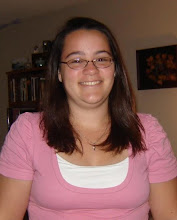My major is Elementary Education. There are so many aspects of theatre that can be incorporated into education. I love children, and I know that children love to dance, sing, act, etc. Have you ever seen a child who doesn’t want to get up and dance when they hear “The Chicken Dance” or when they are given a microphone? What child doesn’t want to explore with theater? Most children are not afraid of getting in front of people and acting, singing, or dancing. There are so many theatre activities that could be incorporated into education of all ages, but I am going to focus on talking about incorporating it into early childhood/elementary grades.
This semester, I have learned so much relating to theater. I have learned theater vocabulary, ways that plays are produced, what all goes into a play, actually going to a play, etc. I feel that all of these aspects can help me when I become a teacher. For example, I can use the vocabulary to teach my students what certain things in a theater mean: color, line, texture, etc. I wouldn’t use too big a words, but ones that they would understand. I could have the children (in older elementary grades) write a play and act it out for the younger grades or for their classmates. They would have to decide who the director was going to be, who would run the lights/sound, who would help with makeup and costumes, etc. This would really get them thinking and really involved in theater. And finally, I would hopefully have the funds and availability to take my students to a play. It wouldn’t have to be a big Broadway play, maybe just a local community one. But I would want them to be able to experience that like I did. Seeing a play really changed my view of theater.
I also realized that theater doesn’t always have to occur on the big stage. This is also a great thing and a neat way that theater can be incorporated into education. Theater can include storytelling, puppetry, improvisation, costumes, dance, ballet, etc. Children love stories, puppets, acting, dancing and dressing up. Why not give them a few lines to say, let them dress up, and act out a play just for fun?
Another way that theater can be incorporated into education is in the early childhood classroom. Usually in these types of classrooms, there are “centers” or different parts of the room that the children can explore in. Usually the normal centers are: kitchen, dress-up, blocks, reading, etc. I would add in a “theater” center. This would have scripts (even though most of these children can’t read, it would get them “pretending”), costumes, play makeup, play microphones, flashlights, and more. This would be different than the dress-up center because children would be pretending to put on a play here, not just dressing up.
Another way that theater can be incorporated into education is through monologues. Having children present poetry is a great way to give them presentation skills/acting as well as reinforcing memorization.
Yet another way to incorporate theater into my major (Elementary Education) could be to do some basic theatre games. These could include: improv situations, listening skills, dancing, acting out a certain thing (charades), etc.
In this theater class, I have learned a lot of skills that are going to help me when I am a teacher someday. I have gotten so many ideas of different things that theater is and personally, I can’t wait to incorporate theater into my classroom someday. It will be fun for my students as well as myself.
About Me

- Cassandra
- This blog is my final project for my Introduction to Theater class. Enjoy! :)